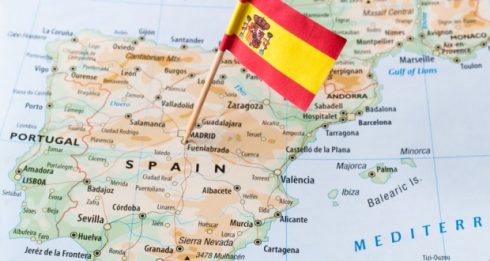Botellón Vocabulary
This week’s vocabulary lesson will introduce a new language entirely: the language of botellón. Exercise books at the ready!
Botellón – A contemporary Spanish phenomenon entailing the mass purchase of alcohol by groups of mainly young student revellers for consumption outdoors in public spaces.
Hacer el Botellón- the act of taking part in a botellón – as in “vamos a hacer botellón” (“Let’s get drunk outside with lots of other likeminded people!”).
La ley antibotellón- The anti-botellón law, approved by the Andalucian Parliament in October 2006.
Botellódromos- Spaces constructed solely for the purpose of botellón removed from residential areas and containing the necessary facilities. They are sometimes known by their alternative names of Cuidad del Ocio (Leisure City) and Polvodromo (its translation does not warrant a mention in such a family-orientated newspaper!).
Macrobotellón- binge drinking on a grand scale. Granada holds the record of an estimated 25,000 to 30,000 people at one enormous gathering on March 16 this year at the Huerta del Rasillo in the city.
Botellón News
If this is the first you have heard about it you must have been living in a cave (quite probable around these parts), but you have already missed the book: Botellón, Un Conflicto Postmoderno (Botellón, A Post-Modern Conflict) published in 2004. The film and the TV series must surely be to follow.
Social tensions have been bubbling for years between the nearby residents of botellón haunts and groups of young drinkers: this is why the anti-botellón law, which forbids mass public drinking and punishes it with on the spot fines, has been brought into force. The new restrictions, however, introduce the conundrum of what on earth to do with some 30,000 party-hard drunken youths. Most councils have decided to create areas in which the new law is wavered to allow drinkers to continue without causing irritations in residential zones. One of the biggest is the Arenal outside the centre of Córdoba.
The local news is that the Ayuntamiento de Granada has begun to construct a botellódromo, the popular term (disapproved of by the council) for the super-space of almost 9,500 square metres (m2) that is due to be completed in January. The project aims to get the “botelloners” away from the non-intoxicated, non-botelloners who object to them and all the revelry, questionable behaviour and bodily fluids that accompanies them. This at least, is the popular truth. The Ayuntamiento truth is that a “space for leisure” is being constructed on the outskirts of town for sports, live performances, giant screen projections, oh, and possibly to hacer botellón without offence caused to long-suffering neighbours.
The anti-botellón law obliges the local law enforcement officials to fine outdoor drinkers who gather in large groups. However, the Andalucian communities, due to the revolutionary popularity of the pastime in the region, have constructed a ‘get-out clause’ to allow them to come down heavily on the outdoor drinkers whilst offering them a safe, alternative place to hacer botellón. Hence the botellódromo is born.
The botellódromo, sorry councilors, ‘space for leisure’ is therefore Granada’s response to the new law and an attempt to keep 30,000 pissed youths in an affable mood. Each city in Andalucía has plans for a similar project; however, Granada is the first to begin construction since the law was passed and expects to open its botellódromo in January.
The project will be located on top of an underground car park near to a place known as Huerta del Rasillo. It will cover over 9000 m2 and hold around 20,000 people; it will also boast limited shelter from the weather as well as toilets and cash-points. Additionally, the space will have sports tracks, a concert stage and a large screen for cinematic projections.
Fears are a total clamp down on the tens of thousands of botelloners could lead to violent riots, as seen in March in Barcelona and Salamanca in which over 80 people were injured.
The Granada authorities have decided not to enforce the anti-botellón law until an alternative can be offered. Granada’s botelloners have been given an amnesty by the local authorities and have been assured they will not be fined by police until the botellódromo is finished early in 2007.
The Ayuntamiento de Córdoba has also tried to reach a compromise by reserving three car-parks for botellón away from residential areas. The council has also provided bins and toilets in the designated areas and in one there is even an alcohol awareness stand to inform the botelloners of the dangers of their excesses.
The rest of Andalucía, however, has begun clamping down on botelloners already.
After a month of warnings, Huelva and Sevilla have begun imposing fines on offenders – without offering them an alternative place to go.
This week the bad news comes from Sevilla: a weekend of violence in the city has left five people with serious injuries and various others with criminal charges against them. One of the city’s bars, its broken windows boarded up, bears a note on the door which reads: “Closed due to police brutality.” The Ayuntamiento de Sevilla has pleaded with the police forces to exercise restraint against offenders, asking they try to communicate with the drinkers and to explain the new law without resorting to violence.
The coming months will be testing for all sides in this contemporary conflict, as the young botelloners fight for their right to a good time whilst residents and police continue to fight to move them on.








